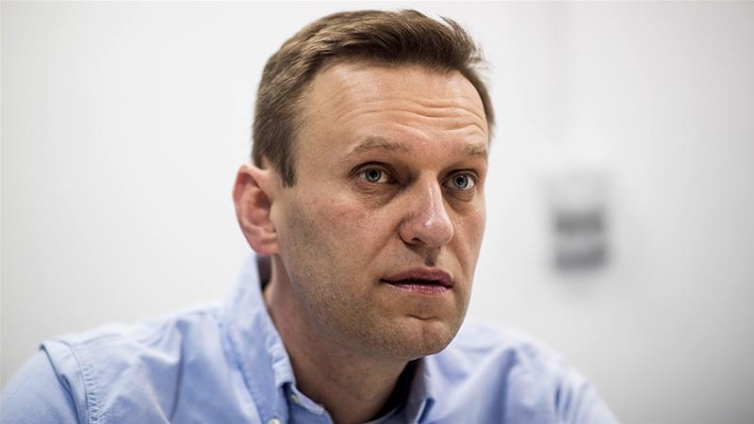A scientist involved in the secret Soviet programme to create the Novichok nerve agent has apologised to the Russian opposition politician Alexey Navalny, who is recovering from poisoning in Berlin.
Vil Mirzayanov, a chemist who was the first to reveal Novichok's development, in an interview with Russia's TV Rain on Saturday evening said he wanted to apologise to Navalny after Germany said it found "unequivocal evidence" he was poisoned with Novichok.
Navalny described his severe symptoms after falling ill on a plane on August 20, including the inability to form words, saying he still struggled to pour a glass of water or use a phone.
"I offer my profound apologies to Navalny for the fact that I took part in this criminal business, developing this substance that he was poisoned with," said Mirzayanov, who now lives in the United States and wrote the first articles on Novichok's development in the early 1990s.
Germany has said laboratory tests in three countries have determined he was poisoned with a Novichok nerve agent, and Western governments have demanded an explanation from Russia.
Mirzayanov's apology comes as another scientist who worked on the programme has denied that Navalny could have been poisoned with Novichok.
Mirzayanov predicted that Navalny would eventually recover.
"Navalny will just have to be patient but in the end, he should be healthy," Mirzayanov said, predicting recovery would take "almost a year".
He suggested that Navalny most likely took in the poison orally, since he appears not to have contaminated others.
This counters a suggestion by another scientist who worked on Novichok, Vladimir Uglev, who told Proyekt investigative site that Navalny's survival suggested he had only skin contact.
Navalny's aides gathered discarded objects from his hotel room in the Siberian city of Tomsk and sent them to German experts who found Novichok on a water bottle.
Russian scientist Leonid Rink, who state media says worked on the programme to develop Novichok, poured scorn on Mirzayanov's comments on Sunday.
Speaking to the RIA Novosti news agency, Rink said Mirzayanov, while he worked at the same research centre, he was an "ordinary" chemist not directly involved in Novichok's creation.
"He has nothing to do with the creation of Novichok," Rink insisted, adding Mirzayanov could not know its "biological effects".
Rink argued that if Novichok had been used on Navalny, the opposition leader would have died.
"He wouldn't have survived if it was Novichok," he said.
Latest Stories
-
EBID wins the Africa Sustainability Award
2 hours -
Expansion Drive: Takoradi Technical University increases faculties
6 hours -
SHS heads demand payment of outstanding funds before reopening of schools
7 hours -
We thank God for the 2024 general elections – Akufo-Addo
7 hours -
Coconut Grove Beach Resort marks 30 years of excellence with memorable 9 lessons & carols service
7 hours -
WAFU B U-17 Girls’ Cup: Black Maidens beat Nigeria on penalties to win inaugral tournament
8 hours -
Real Madrid beat Sevilla to keep pressure on leaders Atletico
9 hours -
Liverpool put six past Spurs to go four points clear
9 hours -
Manchester United lose 3-0 at home to Bournemouth yet again
9 hours -
CHAN 2024Q: ‘It’s still an open game’ – Didi on Ghana’s draw with Nigeria
9 hours -
CHAN 2024Q: Ghana’s Black Galaxies held by Nigeria in first-leg tie
10 hours -
Dr Nduom hopeful defunct GN bank will be restored under Mahama administration
11 hours -
Bridget Bonnie celebrates NDC Victory, champions hope for women and youth
11 hours -
Shamima Muslim urges youth to lead Ghana’s renewal at 18Plus4NDC anniversary
12 hours -
Akufo-Addo condemns post-election violence, blames NDC
12 hours

